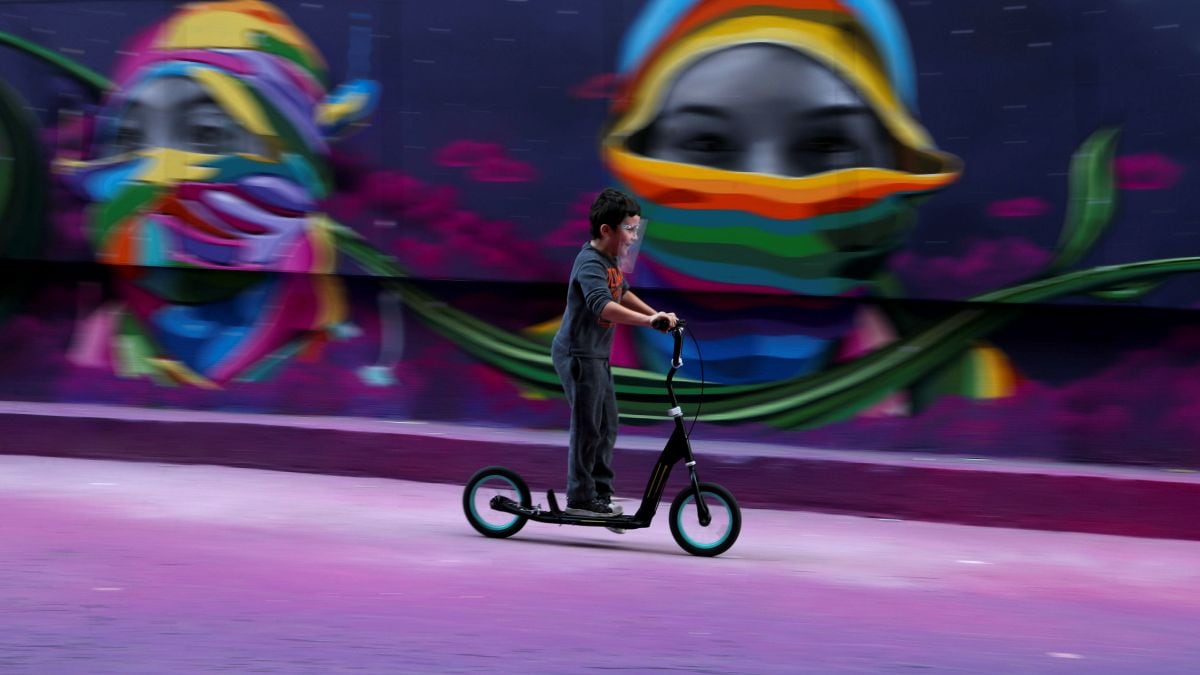South Korea is one of the most overworked countries in the world with reports of loneliness and burnout among the young. So how are they tackling their daily stress? Well, the answer may ‘rock’ you
)
Pet rocks are more affordable compared to traditional pets ranging from 6,000 won (S$6) to 10,000 won. Image used for representational purposes/Pixabay
A peculiar trend has been gaining momentum in South Korea, where adults are turning to pet rocks as a remedy for loneliness and workplace burnout. What once served as a novelty joke gift in 1970s America, popularised by advertisement executive Gary Dahl, has found a new purpose across the Pacific.
The resurgence of pet rocks in Asia signifies a departure from their humorous origins. Instead, they’re perceived as a means to alleviate the pervasive sense of isolation and exhaustion prevalent in South Korean society. This renewed interest in stones resonates with cultural references, such as the stone slab featured in director Bong Joon-ho’s award-winning film “Parasite,” symbolising prosperity and fortune.
In the wake of the COVID-19 pandemic, the allure of collecting stones has experienced a resurgence, albeit with a modern twist. Smaller stones, colloquially termed “pet stones,” have become the object of choice for individuals seeking companionship. These rocks, adorned with nicknames and personalised accessories, offer a semblance of comfort and connection in an increasingly isolated world.
‘Suseok’ and its significance
Central to this phenomenon is the concept of “suseok,” or scholar’s rock, renowned for its auspicious qualities during the Joseon Dynasty. Originally a symbol of prosperity and refinement, suseok regained popularity during South Korea’s economic boom of the late 20th century. However, its contemporary resurgence is intertwined with a shift in perception, from a symbol of wealth to a source of solace amid modern challenges.
Pet rocks or stones are more affordable compared to traditional pets or suseok, ranging from 6,000 won (S$6) to 10,000 won.
Not ‘just’ a stone
WSJ spoke to millennials like Koo Ah-young, 33, who have embraced pet rocks as a coping mechanism for workplace stress and loneliness. Koo, who grappled with burnout in her new office job in Seoul, found solace in her pet rock, “Bang-bang-i.” She confides in the rock about her daily struggles and carries it with her as a source of reassurance during walks and gym sessions.
i have a pet rock… say hello pic.twitter.com/1Vb39vEWrt
— tabibi🪼🫧 (@miffyleaf) April 17, 2024“I purchased a pet stone for the first time during the pandemic. I just wanted to have something by my side while I was working remotely. It provided me a sense of companionship,” The Straits Times quoted Lim, a 29-year-old woman who owns a pet stone, said.
My Pet Rock ❤️
Thank you @TheKamoteFurry >w< pic.twitter.com/Erdo5gUxNh
People who have pet stones tend to personify them. In many online social media posts, they put pictures of their pet stones as they would do with their pet animals. People also give the stones nicknames, prepare beds where they can rest, provide clothes and decorate them as if they were alive, reported The Strait Times.
“I would occasionally pick my stone up from its bed and pat it. I sometimes just talked to it as if I was talking to myself,” Lim added.
The burgeoning popularity of pet rocks is evident on social media platforms like TikTok, where users showcase their creative endeavors in decorating and caring for their stones. This online presence has catalysed a market for pet rocks, making them accessible to a wider audience.
Addressing social challenges
Loneliness and burnout are not new phenomena in South Korea, with factors like financial strain and workplace pressures contributing to the issue. The rise of single-person households and the prevalence of overwork culture underscore the need for innovative solutions to tackle societal challenges.
The therapeutic benefits of pet rocks extend beyond their symbolic value. Many South Koreans report feeling a sense of calm and tranquility when interacting with their pet rocks, whether through conversation, touch, or creative expression. The tactile sensation of holding a smooth stone, coupled with the rhythmic process of painting or decorating it, can be deeply grounding and meditative, providing a much-needed respite from the stresses of daily life.
According to an April 2023 report from South Korea’s Ministry of Gender Equality and Family, approximately 3.1 per cent of Koreans aged between 19 and 39 are classified as “reclusive lonely young people.” This statistic, as translated by CNN, underscores the multifaceted nature of the problem, with various factors contributing to feelings of isolation and fatigue.
Financial struggles, mental health challenges, family issues, and overall well-being are all cited as key factors exacerbating loneliness and burnout, as reported by CNN based on the ministry’s findings.
While those employed full-time in Seoul may not experience the same degree of isolation as individuals in other regions, the demanding nature of work in South Korea presents its own set of challenges. Bloomberg’s November 2023 report highlighted that more than 98% of grade-A offices in the capital are occupied, indicating a decline in remote work practices.
Additionally, South Korean companies have a notorious history of overworking their employees. In March 2023, the government proposed increasing the workweek from 52 hours to 69 hours, eliciting significant backlash from Millennials, Gen Z, and labour unions. This pushback ultimately prompted a reconsideration of the plans.
Data from the Organisation for Economic Cooperation and Development (OECD) further illustrates the extent of overwork in South Korea. In 2022, South Korea ranked as the most overworked country in Asia and the fifth-most overworked country globally, according to OECD statistics.
The adoption of pet stones represents a departure from traditional stone-collecting practices, reflecting a modern approach to combatting loneliness and fostering emotional well-being. As South Koreans navigate the complexities of contemporary life, pet rocks offer a tangible source of comfort and companionship in an increasingly digital world.
With inputs from agencies

 4 months ago
12
4 months ago
12


















)
)
)
)
)
)
)
 English (US) ·
English (US) ·